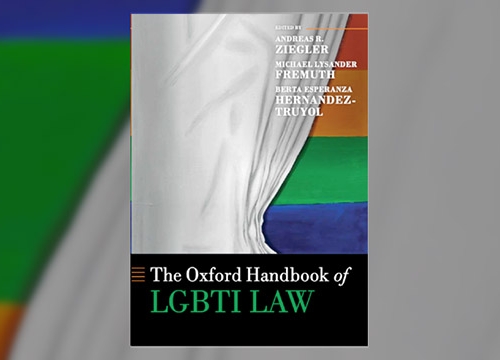Freedom of Gender Identity and Sexual Orientation - Book Launch and Symposium
Event
Sexual orientation and gender identity have been out of the closet in academic debate for over fifty years. In the humanities and social sciences, gay and lesbian studies, queer studies and diversity studies have produced a number of important publications on lesbian, gay, bisexual, transgender and intersex (LGBTI) people.
Most of these studies are legal guides or journal articles on specific national legal systems (particularly in the USA and Europe). In addition, very few regional and international organizations (normally the UN and European institutions such as the EU and the Council of Europe with the European Court of Human Rights). While some inter-governmental bodies and NGOs have undertaken important work on the human rights aspects of the subject and the jurisprudence that flows from them, there is no comprehensive and accurate, albeit concise, textbook on the common problems faced by LGBTI people around the world and the national and international legal responses to them. Perhaps the discourse on same-sex marriage or civil partnership and the partial realization of adoption have benefited from increased comparison in recent years, but other aspects are not well covered or in an easily accessible and accurate way. Professor Andreas R. Ziegler, Michael Lysander Fremuth and Berta Hernandez are the editors of the 'The Oxford Handbook on LGBTI Law', which is intended to serve as a comprehensive teaching manual on freedom of gender identity and sexual and emotional life.
The aim of the book launch and symposium is to present a selection of chapters from this forthcoming book, bringing together some of the world's leading academic experts in research in this field. It will enable participants to obtain an up-to-date overview of the main issues and legal responses from an international (including regional) and comparative perspective. The aim is not to collect data on every jurisdiction in the world, but to identify and analyze common trends and legal patterns concerning sexual orientation and gender identity in order to present possible solutions to the remaining challenges. The target audience, beyond academics, is anyone teaching courses on LGBTI people around the world, enabling them to develop comparative and international aspects in addition to purely national approaches.
The Program for the launch and symposium can be found here.
Disclaimer
This event may be filmed, recorded and/or photographed on behalf of the Geneva Academy. The Geneva Academy may use these recordings and photographs for internal and external communications for information, teaching and research purposes, and/or promotion and illustration through its various media channels (website, social media, newsletters, annual report, etc.).
By participating in this event, you are agreeing to the possibility of appearing in the aforementioned films, recordings and photographs, and their subsequent use by the Geneva Academy.







